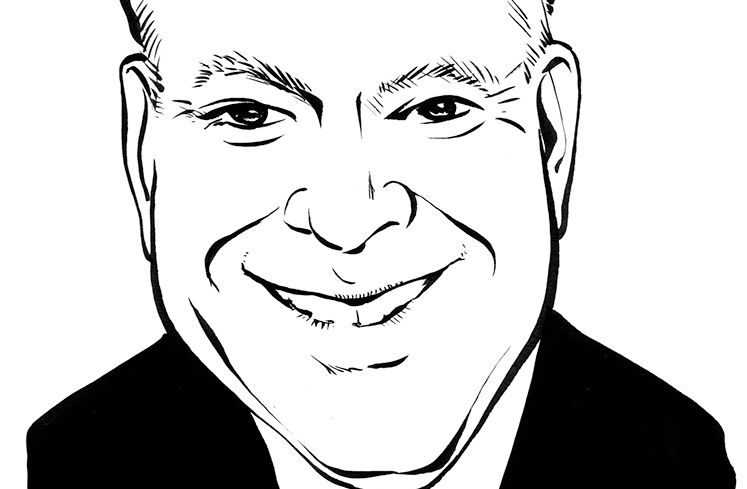Foreclosure Foiled by a Paper Clip
By Joshua Stein November 5, 2015 12:00 pm
reprints
A recent New York court decision in a residential foreclosure case shines a bright light on what’s wrong with our foreclosure system. We suffer from antiquated negotiable instruments laws so complex that even an appellate court seems to have gotten them wrong. The case also suggests how loan purchasers can stay out of trouble and how the legislature could improve things.
The familiar saga began sometime before mid-2013, when a residential borrower stopped paying their mortgage. The loan was passed around, eventually landing at HSBC, which tried to foreclose. After two years of litigation, the appellate court threw out the foreclosure because HSBC didn’t have “standing.” Why not?
Well, HSBC did have the promissory note, the document evidencing the borrower’s promise to pay. The global banking firm had obtained it from someone else. But the document transferring the note to HSBC—the so-called “allonge”—was paper-clipped to the note, not firmly attached, such as with glue, tape or a heavy staple. So the allonge was not a valid endorsement. So HSBC was not a “holder.” So HSBC had no right to enforce the note. Back to square one!
Legally, the result seems questionable. Receiving a promissory note through a proper endorsement is not the only way to get the right to enforce it. If someone acquires a loan and has the physical note—even without a proper endorsement—they will usually have the right to enforce the note. They may not legally be a “holder,” so they may face some defenses they could have otherwise avoided. But they should still be able to foreclose.
The recent court decision, issued over the summer, does not seem to recognize that possibility. Instead it recognizes only one way for a loan purchaser to have the right to foreclose: they must receive the note through a proper endorsement and become a “holder.” That seems an overly narrow view of the law.
This court decision means any acquirer of a promissory note should ask the seller to endorse the note to the acquirer on the note itself. If they must use an allonge, they should have it firmly attached to the note, not just paper-clipped. Either strategy avoids HSBC’s ridiculous predicament. In my experience, though, no one ever takes either action. Instead, the seller or transferor signs an endorsement on a separate piece of paper, an “allonge,” and drops it into a file folder, attaching it to nothing.
The HSBC case also shows, yet again, that our law of negotiable instruments is antiquated and overtechnical, imposing requirements for transfers of mortgage loans that simply make no sense in 2015. Those outdated requirements start with the very existence of promissory notes—documents that talismanically embody the borrower’s obligation to pay and thus must be treated with great reverence. Corporate finance has largely done away with notes, replacing them with contractual obligations to pay, tracked electronically. Why can’t we do that in real estate? No one wants to go first.
In theory, the technical requirements on promissory notes protect the borrower from the risk of having to pay twice. In the modern world, these requirements don’t actually achieve that goal or any other, except sometimes the borrower’s goal of delaying the inevitable foreclosure sale. If any mortgage borrower ever did have to pay twice, we would have definitely heard about it. If the legislature ever decides to improve negotiable instruments law by eliminating gratuitous technicalities like those which derailed HSBC, the legislation could allow a mortgage borrower to recover a substantial penalty from anyone who did try to make the borrower pay twice.
As a result of silly procedural issues like the paper clip snafu described above, New York courts handle foreclosures much too slowly. Under the facts of this case, the borrower probably got a free year in their house before the foreclosure began, then two more free years during foreclosure. In that time, the borrower almost certainly did not pay real estate taxes. No one had an incentive to maintain the property. So if the legislature cares about how houses in foreclosure damage neighborhoods and drive down nearby values, it should dramatically streamline foreclosures. A great place to start would be to eliminate technical pitfalls that create spurious issues and delays like those faced by HSBC.
Joshua Stein is the sole principal of Joshua Stein PLLC. The views expressed here are his own. He can be reached at joshua@joshuastein.com.

![Spanish-language social distancing safety sticker on a concrete footpath stating 'Espere aquí' [Wait here]](https://commercialobserver.com/wp-content/uploads/sites/3/2026/02/footprints-RF-GettyImages-1291244648-WEB.jpg?quality=80&w=355&h=285&crop=1)

